Clean Beauty Gains Ground as Consumers Demand Transparency in Ingredient Lists
flareAI
Quick Listen:
In the opulent souks of Dubai and the sleek high-rises of Singapore, a profound shift is reshaping the beauty aisle. Shoppers, once content with alluring packaging, now wield their phones like detectives, decoding ingredient lists that rival legal documents in complexity. The era of "clean" beauty devoid of parabens, sulfates, and synthetic dyes has transcended fad status to become an unyielding standard. Here, transparency isn't a perk; it's the cornerstone of commerce in an industry where skepticism runs deep and authenticity commands loyalty.
Many women feel trapped by makeup that hides flaws but risks irritation and hidden toxins. This daily choice weighs heavily, dimming confidence over time. Liht Organics invites you to embrace beauty differently. With up to 90% USDA-certified organic ingredients, our vegan, cruelty-free products deliver vibrant color and gentle care, letting you glow with confidence, knowing your skin is nurtured, not compromised. Shop Now!
Transparency Becomes the New Luxury: Clean Beauty Rises Across Emerging and Mature Markets
The ascent of clean beauty from underground darling to dominant force is redefining global consumer expectations. Spanning the arid expanses of Riyadh to the azure coasts of Sydney, this movement compels brands to bare their formulations or risk obsolescence. Propelled by digital watchdogs and escalating regulations, the sector, valued at a robust USD 7.29 billion in 2024, is barreling toward USD 20.51 billion by 2032 at a compound annual growth rate of 13.8 percent. In hotspots like the UAE, India, and Southeast Asia, the imperative extends beyond aesthetics: it's a quest for wellness that harmonizes with planetary health. Consumers, increasingly savvy about the perils of conventional chemicals from endocrine disruption to long-term dermal harm are flocking to alternatives that prioritize natural potency and forthright disclosure.
This evolution traces back to grassroots innovation in boutique labs and amplified through influencer exposés that unraveled toxic secrets in mainstream staples. Now ubiquitous from mass retailers to high-end retreats clean beauty thrives on "free-from" paradigms, like botanical-infused serums sans irritants, coupled with traceability that maps every element's journey. For organic cosmetics and personal care, this convergence of trust-building transparency and harmonizing regulations signals a golden age. Pioneering labels aren't peddling mere commodities; they're curating narratives of ethical elegance that resonate across borders.
Emerging Trends Across Key Markets
Envision a sweltering Dubai dusk, perfumed with incense and aspiration. In the Gulf's glittering core, clean beauty flourishes against a backdrop of towering innovation. The UAE and Saudi Arabia spearhead halal-verified offerings that mandate unyielding ingredient revelations under GCC protocols, transforming potential compliance burdens into strategic triumphs. Artisanal organic skincare enclaves proliferate like resilient oases The Giving Movement in Dubai embodies philanthropy in every vial, while Riyadh's Botaniqa fuses arid heritage with eco-conscious casings.
This surge is substantive: the GCC's clean beauty sector is set to crest at $2.6 billion by 2025, per Euromonitor, underscoring a fusion of extravagance and enlightenment where purity rivals piety. Affluent patrons crave essences as pristine as their rituals, and innovators are rising to the occasion with formulations that honor both faith and follicle.
Venturing to Singapore and Malaysia's verdant tropics, where humidity demands deft, unadorned regimens, oversight intensifies. The Health Sciences Authority in Singapore and Malaysia's National Pharmaceutical Regulatory Agency enforce decipherable disclosures, slashing through arcane terminology. Vanguard ventures like Singapore's Sigi Skin tout bioactive naturals with rosters as direct as street fare, and Malaysia's dUCk Cosmetics pares to fundamentals, affirming that virtue needn't bankrupt.
Regional appetites lean decisively green: a 2024 survey indicates 67 percent of Asia-Pacific shoppers are tweaking habits to curb ecological footprints, favoring recyclable and origin-transparent brands. This ethos pulses through steamy bazaars and chilled high-rises, where performance eclipses puffery in the pursuit of resilient radiance.
India, a tapestry of venerable lore and kinetic enterprise, witnesses Ayurveda entwining with untainted modernity, spawning luminaries like Forest Essentials, Kama Ayurveda, mCaffeine, and Liht Organics. These elixirs, anchored in validated purities from heirloom oils to invigorating infusions embody certified sanctuary. The Food Safety and Standards Authority alongside the Bureau of Indian Standards are converging with worldwide transparency tenets, fueling a sector poised for a 15.4 percent CAGR from 2024 to 2030, ballooning from USD 252.8 million in 2023 to USD 690.4 million.
Straddling the Pacific, the United States and Australia, venerable bastions of beauty, embrace verdant reforms. America's FDA, via the 2023 Modernization of Cosmetics Regulation Act (MoCRA), enforces exhaustive disclosures and adverse event filings, sealing gaps for dubious declarations. In Australia, the Competition and Consumer Commission targets nebulous "organic" assertions and provenance prevarications. Stalwarts like U.S.-based Beautycounter, with its vetoed villains roster, and Australia's Biologi, merging molecular science with indigenous cures, illustrate how empiricism allies with ethos. Here, rigorous review begets refined results, with the U.S. clean beauty arena expanding from USD 2.26 billion in 2023 to USD 5.70 billion by 2030 at a 14.1 percent clip, skincare commanding the throne while color cosmetics accelerates.
Case Studies: Clean Beauty in Action
Delve deeper into the architects of this paradigm. Singapore's Liht Organics, a USDA-certified organic cosmetics vanguard, demystifies allure with absolute candor from verdant pigments to reusable vessels now gracing shelves in the UAE and India. Its ethos: opulence unencumbered by earthly toll. Lip salves, brimming with unrefined essences, unfold via scannable codes to provenance tales, bridging farm to face.
India's Juicy Chemistry dons its Ecocert laurel proudly, pioneering QR-embedded traceability on vessels nationwide. Query a sandalwood source? A scan whisks you through Kerala's canopies. This accessibility elevates exclusivity, converting doubters to devotees.
In America, Ilia Beauty weds diaphanous hues to empirical evidence trials, sensitivities dissected. Their outreach transcends promotion; it's pedagogy, illuminating clean's profundity past platitudes. Australia's Grown Alchemist, akin to modern mystics, amalgamates ferment tech with ancestral actives, inscribed with atomic accuracy. These exemplars transcend outliers; they template transformation in a mutable milieu, echoing broader tides where nine in ten now procure select clean personal care, prizing non-toxic, botanical bases.
Challenges in Transparency and Labeling
Yet revolutions rarely glide unscarred. Foremost: "clean" defies uniform decree, from MoCRA's rigor to GCC's faith-infused filters and HSA's herbal hawk-eye, ensnaring multinationals in acrobatic adherence. Greenwashing lurks insidious, adorning synthetics with "natural" halos, corroding credence swifter than subpar serums.
Boutique operators bear the brunt: validations devour budgets, exhaustive revelations necessitate luminous ledgers. In nascent arenas like Malaysia and Saudi Arabia, enlightenment accelerates unevenly vigilance vaults, yet queries proliferate. Discernment amid cryptic codices? A chasm clamoring for conduits: apps, advocates, perhaps pedagogical infusions. Compounding this, the absence of codified "clean" benchmarks sows skepticism, as consumers grapple with authenticity amid ambiguity.
Business Opportunities and Industry Impacts
Amid thorns, vistas vasten. Innovation levels the field: distributed ledgers track Tamil tubers to toiletry, QR portals proclaim provenance. Vegan and organic cohorts allure millennials and Gen Z, who premium-pay for probity, propelling the organic personal care domain from USD 31.22 billion in 2025 to USD 71.43 billion by 2034 at 9.63 percent CAGR, North America staking over 28 percent.
Transnational flux flourishes, Singapore as serum conduit from Balinese groves to Gulf galleries. Indigenous blenders and bespoke ateliers thrive, tailoring halal harmonics and plant-based phials to palates. Beyond expansion, it's an eddy elevating craftsfolk, crucibles, conveyors into sustainable synergy, with 65 percent of global buyers chasing clean constituents for health and habitat alike.
Expert Insights and Future Outlook
Oracles opine boldly: Asia-Pacific clean beauty beckons double-digit surges through 2030, mandates eclipsing evasion. Gulf gurus to subcontinental strategists herald haptic helpers: decoders dismantling INCI enigmas, emblems endorsing verity. A 2024 Mintel probe unveils 78 percent of personal care patrons pressing for fortified oversight on disclosures and validations, especially youth forsaking suspect stock post-safety scares.
This transcends whim; it's foundational uplift. Clean beauty morphs from rhetorical ruse to regulatory rite, traversing spotlighted spheres. Laggards? Destined for footnotes in forgotten formularies.
A Transparent Horizon
From Riyadh's spires to Melbourne's meanders, candor cements the covenant 'twixt cosmetique and client. As edicts escalate and epiphanies emanate from molecular manifests to genesis genealogies the vanguard vanquishes. Ventures wagering on unveiled verities, lineage legacies, verdant validations? They author the epoch's effulgence. In a facade-fatigued firmament, veracious veneer prevails eternally. Who'd have thought enlightenment dawned in deciphering the diminutive?
Frequently Asked Questions
What is clean beauty and why is it becoming so popular?
Clean beauty refers to products free from harmful ingredients like parabens, sulfates, and synthetic dyes, emphasizing natural formulations and transparent ingredient disclosure. The movement has gained momentum as consumers become increasingly aware of the health risks associated with conventional chemicals, from endocrine disruption to long-term skin damage. With the global clean beauty market projected to reach USD 20.51 billion by 2032 at a 13.8% growth rate, this trend reflects a fundamental shift where transparency and wellness have become non-negotiable standards rather than optional perks.
How do clean beauty regulations differ across markets like the UAE, Singapore, India, and the US?
Each region enforces distinct transparency standards: the UAE and Saudi Arabia mandate halal-verified offerings under GCC protocols, Singapore's Health Sciences Authority and Malaysia's regulatory agencies require clear, decipherable disclosures, while India's Food Safety and Standards Authority aligns with global transparency standards. In the United States, the 2023 Modernization of Cosmetics Regulation Act (MoCRA) enforces comprehensive ingredient disclosures and adverse event reporting, and Australia's Competition and Consumer Commission actively targets misleading "organic" claims. These varying requirements create challenges for multinational brands but ultimately strengthen consumer protection across all markets.
What are the biggest challenges facing clean beauty brands today?
The primary challenge is the lack of a universal definition of "clean," which creates compliance complexities as brands navigate different regulatory frameworks across markets like the US, GCC countries, and Asia-Pacific regions. Greenwashing remains a persistent issue, with some brands falsely labeling synthetic products as "natural," eroding consumer trust faster than actual product quality issues. Additionally, smaller boutique brands struggle with the high costs of certifications and extensive ingredient traceability systems, while consumers face difficulty deciphering complex ingredient lists without proper educational resources or apps to guide their purchasing decisions.
Disclaimer: The above helpful resources content contains personal opinions and experiences. The information provided is for general knowledge and does not constitute professional advice.
You may also be interested in: Makeup Tips – Liht Organics
Many women feel trapped by makeup that hides flaws but risks irritation and hidden toxins. This daily choice weighs heavily, dimming confidence over time. Liht Organics invites you to embrace beauty differently. With up to 90% USDA-certified organic ingredients, our vegan, cruelty-free products deliver vibrant color and gentle care, letting you glow with confidence, knowing your skin is nurtured, not compromised. Shop Now!
Powered by flareAI.co
شاركي
You May Also Like
-

Discovering Self-Love Through Clean Beauty: A Guide to Nurturing Your Inner and Outer Self
In the journey of self-love, every action, thought, and choice we make towards ourselves can be a powerful affirmatio...
-

The Science Behind Organic Makeup and Pregnancy: A Gentle Choice for Moms-to-Be
wp:paragraph Pregnancy is a wonderful and exciting journey that comes with added responsibilities of ensuring the ...
-
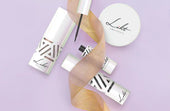
Liht Organics Black Friday: Enhance Your Beauty Routine with Vegan, Organic, and Natural Essentials!
As the holiday season approaches, there’s a sparkle in the air, and we at Liht Organics are thrilled to add a touch o...
-

Organic Makeup That Heals As It Conceals
Liht Organics Empowers Women With Only The Best For Their Beauty NeedsLiht Organics combines the best of both worlds:...
-
![[FEATURE] Liht Organics to debut at TFWA Asia Pacific show](//lihtorganics.com/cdn/shop/articles/1_1.png?v=1759328400&width=170)
[FEATURE] Liht Organics to debut at TFWA Asia Pacific show
‘Organic makeup that’s safe enough to eat’ — Liht Organics to debut at TFWA Asia Pacific show by Hannah Tan | 24 Apri...
-
![[FEATURE] The Singapore-based organic makeup brand is a first-time exhibitor at this year’s TFWA Asia Pacific Exhibition in Singapore in May 2025](//lihtorganics.com/cdn/shop/articles/2_1.png?v=1759328386&width=170)
[FEATURE] The Singapore-based organic makeup brand is a first-time exhibitor at this year’s TFWA Asia Pacific Exhibition in Singapore in May 2025
TFWA Asia Pacific preview: Liht Organics targets expansion in travel retail By DFNI Staff Writer The Singapore-bas...
-
![[FEATURE] Travel Retail Awards 2025 finalists - Best Make-up Product Color-Intense Liquid Lipstick – Liht Organics](//lihtorganics.com/cdn/shop/articles/4_e2f54f0f-fcd1-46e7-9990-fc9d29e35131.png?v=1759328382&width=170)
[FEATURE] Travel Retail Awards 2025 finalists - Best Make-up Product Color-Intense Liquid Lipstick – Liht Organics
Revealed: Travel Retail Awards 2025 finalists By Trbusiness Editor | Wednesday, 23 July 2025 15:21 TRBusiness is th...
-
![[FEATURE] Liht Organics targets expansion in travel retail](//lihtorganics.com/cdn/shop/articles/3_1.png?v=1759328346&width=170)
[FEATURE] Liht Organics targets expansion in travel retail
Organic makeup that’s safe enough to eat: Liht Organics targets expansion in travel retail By Laura Shirk Liht Organ...
-

[FEATURE] Gulf News: TikTok’s strawberry girl makeup trend: How to achieve that rosy glow inspired by Hailey Bieber
Berry, berry, strawberry, love strawberry, like BTS’s J-Hope, the band’s strawberry enthusiast once said. If only we ...
-

[FEATURE] Gulf Business Magazine : Liht-ing it up
Our founder, Nerissa Low was interviewed by Gulf Business, where she discussed her experience launching Liht, an orga...
-

[FEATURE] Daily Vanity: 11 local beauty brands owned by women – you’d be surprised how many of them started in their kitchens!
When we give a shout-out to homegrown beauty businesses, we aren’t just doing it for the sake of supporting local. Th...
-

[FEATURE] Entrepreneur ME : UAE-Based Liht Organics' Nerissa Low On Crafting An Organic Makeup Brand For The Skin-Conscious Consumer
As is the case with the origin stories of so many startups out there, Liht Organics came into being after its founder...
-
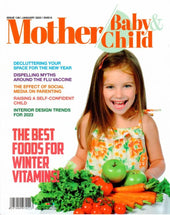
Mother, Baby & Child Editor’s Pick: Liht Organics Lights the Way
Excited to be the Mother, Baby & Child’s ‘Editors pick’ for their choice of Beauty brand.The article outlined the...
-
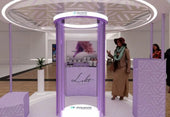
[FEATURE] EmiratesWoman - 8 Fabulous things to do in Dubai this weekend
by SARAH JOSEPHJANUARY 20, 2023Try the UAE’s first virtual reality makeup podium The popular VR-backed makeup exper...
-

Nerissa Low of Liht Organics On The Self-Care Routines & Practices Of Busy Entrepreneurs and Business Leaders
By Maria Angelova, CEO of Rebellious Intl.Date: 4 January, 2023Nerissa Low of Liht Organics On The Self-Care Routines...
-

Liht Organics: Meet the beauty brand that has caught the eye of the Royal Family of Bahrain
By Crystal Lee Digital Editor28 May 2021The world of clean beauty is, ironically, rather murky.That’s because the ter...
-

The latest luxury makeup and skincare drops, including serums, concealers, moisturisers and more
Allisa Noraini21 May, 2021It’s fine to splurge in the name of beauty. This new range of makeup and skincare drops are...
-

These SG Beauty Bosses Are Conquering The World Despite The Pandemic
First Singapore, then the US, China, Germany, Dubai, UK, South Korea, Malaysia, Hong Kong, Thailand, Australia… By...
-

Nerissa Low, Founder at Liht Organics
Written by Callum LaingPosted on December 26, 2020 10 min readNerissa Created Organic Makeup That Actually Improve...
-

Liht Organics – Makeup That Makes You
At Liht Organics, our mission is simple – to provide women (and men) with a safe experience when it comes to beauty s...
-

Why Should We Use Organic Makeup?
We cannot deny that cosmetics is one of our beauty essential item – it enhances our looks and conceals our flaws. Man...
-

Organic makeup and why your skin will love it: Liht Organics founder
By Jolene,July 27, 2020 |7 mins readOrganic make up in Singapore is a trend that is fast-catching on here as we becom...
-

[FEATURE] DC EDIT – Makeup & Confidence: Talking Self-love With Liht Organics’ Founder Nerissa Low
Makeup and confidence — the long, drawn-out fight that many of us have grappled with personally. I’m sure I’m not the...
-

[FEATURE] THE FEMALE CULTURE – I TRIED LIHT ORGANICS AND THIS IS HOW IT WENT
I’m a huge fan of makeup and I love testing out new products so I was pretty excited to get my hands on Liht Organics...
-

[FEATURE] SINGAPORE MOTHERHOOD – The Best Organic and Natural Skincare and Makeup for Pregnant and Breastfeeding Mums in Singapore
Pregnancy is a hormone-volatile period for women. One place where this makes itself seen and felt is on the skin. Som...
-

[FEATURE] AFTER CLINIC HOURS – 21 Back to Beauty Deals in Singapore (2020)
With spas and salons shuttered island wide for two months, I never thought I’d be this desperate for a good old’ Swed...
-

[FEATURE] KUL AL USRA MAGAZINE JUNE 2020
Choosing Pinks & Oranges this summer!Featured: Moisture Burst Lip Glaze in Pink Cupcake.
-
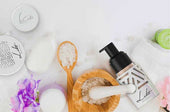
[FEATURE] Award-winning Organic Makeup Brand Liht Organics Gives Back to the Community & Environment During COVID-19
Singapore’s First Organic Makeup Brand with 100% Natural Makeup That Is Safe Enough to Eat Liht Organics promises org...
-

[FEATURE] COSMETICS DESIGN ASIA – COVID-19 ‘WAKE-UP CALL’: SINGAPORE’S LIHT ORGANICS SEES GLOBAL POTENTIAL AMID CLEAN BEAUTY CLAMOUR
Original article at: https://www.cosmeticsdesign-asia.com/Article/2020/06/26/Singapore-s-Liht-Organics-sees-globa...
-

[FEATURE] THE LIFESTYLE COLLECTIVE – BEAUTY SHOULD NEVER BE CRUEL
Date: June 24, 2020Author: Kristen Chen Liht (pronounced as light) Organics is a Singaporean organic makeup brand t...
-

[FEATURE] NÜYOU – 7 ONLINE PLATFORMS TO SHOP FOR CLEAN BEAUTY PRODUCTS
纯净美容(Clean Beauty)的美肤概念,再近几年来越来越受欢迎。随着消费者“爱自己”的美容意识逐步提升,对于用在脸上的所有物品、成分更为关注和讲究。以广义来讲,纯净美容主张使用“干净”成分和无毒配方,让肌肤的可能性损伤减到最小...
-

[FEATURE] COSMOPOLITAN MIDDLE EAST – 3 BENEFITS OF SWITCHING TO ORGANIC BEAUTY PRODUCTS THIS RAMADAN
By Cosmo – May 08, 2020Nerissa Low, founder of Liht Organics, shares the ultimate benefits of going organic this mont...
-

Nerissa Low of Liht Organics: “Seeing Light at the End of the Tunnel; 5 Reasons To Be Hopeful During this Corona Crisis”
Ely Weinschneider, Psy.D.May 8 · 9 min read …It shows us that everyone- whether we are rich or poor, regardless...
-

[FEATURE] AL MARA MAGAZINE APRIL 2020
-

[FEATURE] RetailME April 2020 – Liht Organics Stays Firm On Strengthening GCC Presence
-

[FEATURE] EMARAT AL YOUM NEWSPAPER – 27 MARCH 2020
English Translation:In spring and summer days, women love to have very light makeup in terms of color and texture, ...
-

[ARTICLE] WKND Magazine March 2020 – Know Your Organic Makeup
-

[FEATURE] AVIAMOST DUBAI – March/April 2020
English Translation:Lipstick with organic flowers. Thanks to the rich complex of natural ingredients, the lipstick...
-

[FEATURE] RUSSIAN EMIRATES (MAR/APR ISSUE)
Russian Emirates is a luxury lifestyle and fashion magazine covering information about the UAE, fashion, beauty, j...
-

[FEATURE] – KUL AL USRA MAGAZINE MARCH 2020
GET THE LOOK!
-

[FEATURE] IMAGES Retail ME – Liht Organics Announces GCC-Wide Expansion
Rupkatha Bhowmick Mar 10, 2020 The plan is to reach 75 Liht Organics retail touchpoints by June-July 2020 and touch...
-

[FEATURE] BABY & CHILD SPRING 2020 – NATURAL BEAUTIES
-

[FEATURE] AWQAT DUBAI – Liht Organics: The First Premium Organic Makeup Brand
ENGLISH TRANSLATION:Liht Organics – The First Premium Organic Makeup Brand Liht Organics, a premium organic beauty ...
-

[FEATURE] FRIDAY MAGAZINE – THE RETRO EYELINER LOOK
-

[FEATURE] MOTHER BABY & CHILD – VANITY ESSENTIALS – THE BEAUTY EDIT
-

[FEATURE] Masala! Magazine February/March 2020 Issue – Beauty Debut: Liht Organics
-

[Feature] – TimeOut Singapore – The Best Local Beauty and Skincare Brands In Singapore
For full article, click here.
-

[FEATURE] KUL AL USRA MAGAZINE – LIHT UP YOUR WORLD WITH LIHT ORGANICS
[ENGLISH TRANSLATION]Liht Up Your World With Liht OrganicsThe First Premium Organic Makeup Brand To Debut In The Mi...
-

[FEATURE] SINGAPORE TATLER – 9 Local Beauty Brands You Should Know Of
-

[FEATURE] nüyou August 2019 Issue – 15 Faces To Watch
-

[FEATURE] HONEYCOMBERS – Local Beauty Gurus: Singapore Beauty Brands You Need To Know About
-

[FEATURE] The Wellness Insider – Seeing The Liht With Founder Nerissa Low
-

[FEATURE] 联合早报 (LianHeZaoBao) – Women Entrepreneur Awards 2019 Coverage
-

[FEATURE] THE STRAITS TIMES Life – Clean beauty with a Singapore heart
-

Romantic Organic Makeup Looks for Valentine's Day: Tips, Tricks, and Product Picks
Valentine's Day is the perfect occasion to embrace the beauty of organic makeup. At Liht Organics, we believe in the ...
-
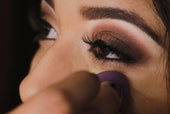
Enhance Your Eyes: A Guide to Eyeliner for Every Eye Shape with Liht Organics
Welcome to the Liht Organics blog, where we believe in celebrating the natural beauty of every eye shape. Today, we'r...
-
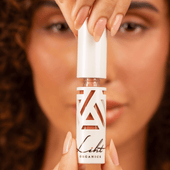
How to do makeup with only lipstick?
At Liht Organics, we believe in the power of clean beauty and the artistry of makeup. Makeup is more than just enhanc...
-

How to Clean Your Makeup Brushes in 6 Simple Steps
Cleaning your makeup brushes may seem like a tedious task, but it's an essential part of your beauty routine. Not onl...
-

Makeup Tips to Help You Look Your Most Flattering on Virtual Meetings!
After more than 2 years of work-from-home arrangement, and possibly hundreds of zoom calls and Google meet virtual me...
-
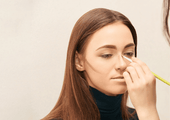
Learn How to Contour with This Simple Guide for Beginners
Want to take your makeup to the next level? Try contouring to achieve a more defined or sculpted look à la the Kardas...
-
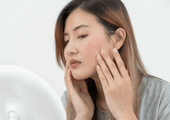
Essential and Easy Makeup Tips for Sensitive Skin
Living with sensitive skin conditions like eczema, psoriasis, and more is already not an easy feat. Throw in makeup t...
-
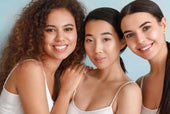
Raising Your Vibration: A Liht Organics Guide for Empowerment This International Women's Day
wp:paragraph As International Women's Day (IWD) approaches, it serves as a powerful reminder of the journey towards s...
-

The Beauty of Going Bare: Why Sleeping with Makeup is a No-No
Have you ever had one of those nights where you're too tired to clean off your makeup? You might believe, "Skipping...
-

Breast Cancer Awareness: Empower Your Beauty with Liht Organics Makeup
During October, we observe Breast Cancer Awareness Month as a way to unite and bring attention to breast cancer whil...
-

The Hidden Dangers of Carmine in Makeup Colorants: Embracing Healthier and Vegan Options
Makeup has become an integral part of our daily routines, allowing us to express our unique beauty. However, as we pr...
-

How can I ensure that my makeup products are organic and won't harm my skin?
When it comes to makeup, it’s important to be mindful of what you’re putting on your skin. With so many products on t...
-
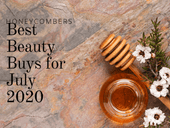
[FEATURE] HONEYCOMBERS – BEST BEAUTY BUYS IN JULY
by Nicole NithiyahWhat’s hot in our beauty hit list: Honest thoughts and top beauty stories we’re swooning over. As w...
-

Liht Organics Introduces Exclusive Gift Sets: Enhance Your Beauty This Festive Season!
As the holiday season approaches and the year draws to a close, Liht Organics is thrilled to present two enchanting g...
-

Get Spooktacular with the Best Halloween Makeup Ideas using Liht Organics' All-Natural, Vegan, and Cruelty-Free Cosmetics!
With Halloween just around the corner, it’s time to let your creativity shine and transform yourself into a spooky,...
-

Celebrating World Animal Day with Liht Organics: Embracing Natural Cruelty-Free Makeup
wp:paragraph As we observe World Animal Day, the team at Liht Organics takes great pride in honoring our pledge to...
-
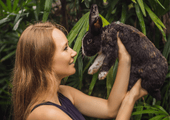
Reasons Why You Should Choose Cruelty-Free Cosmetics Instead!
With increasing exposés unveiling the ugly truth behind animal testing that goes on in the beauty industry, it is lit...
-
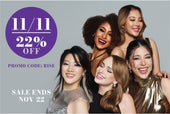
Celebrate Singles Day with Makeup That Empowers – 22% Off at LIHT Organics!
This Singles Day, treat yourself to beauty that goes beyond skin-deep. At LIHT Organics, we believe makeup is about s...
-

Preparing for the Cozy Beauty of Autumn: A Preview of Your Fall Look
As we bid farewell to the warm, sun-kissed days of summer, it’s never too early to start dreaming about the enchantin...
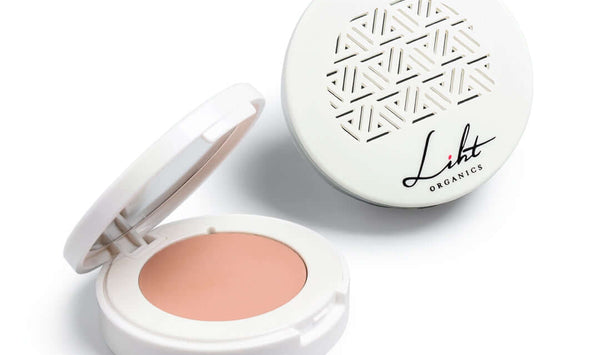
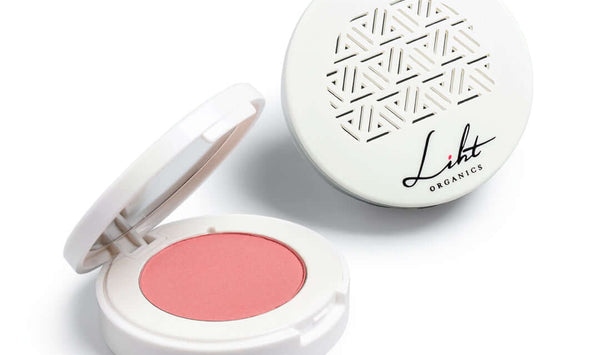
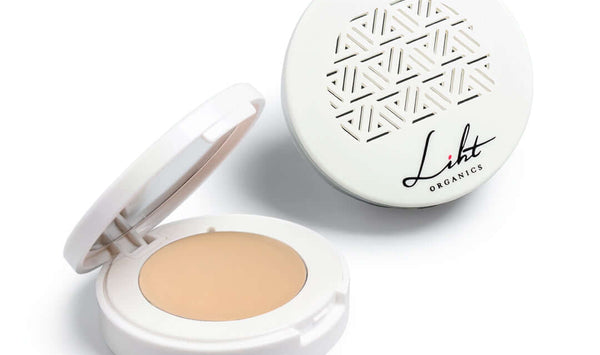
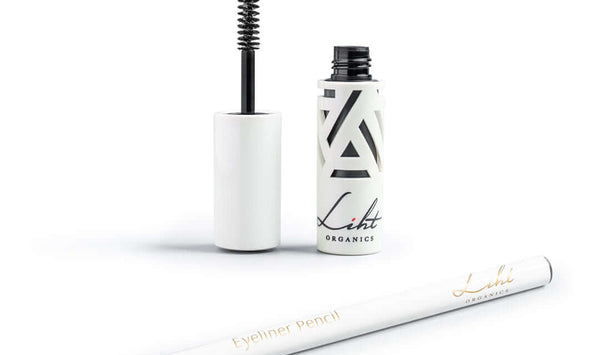
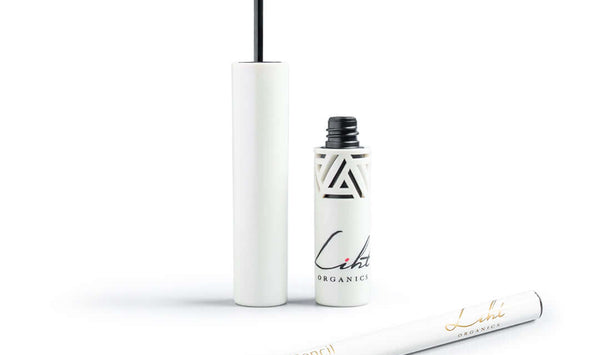
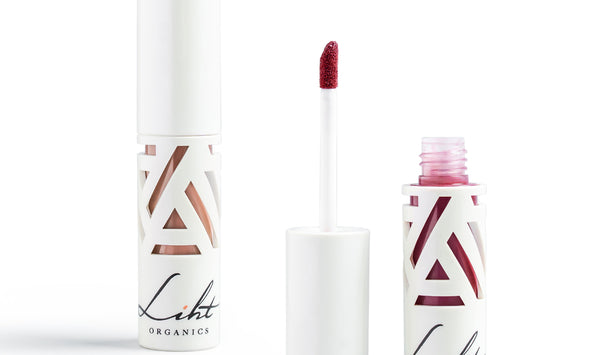
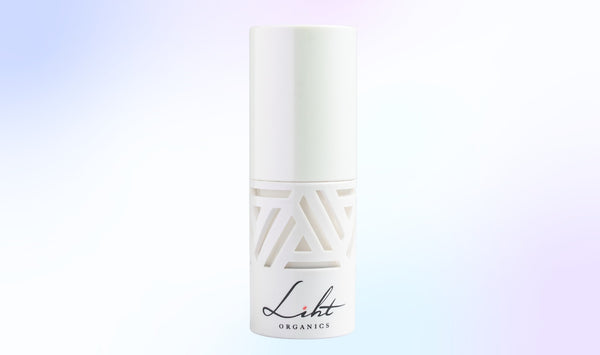

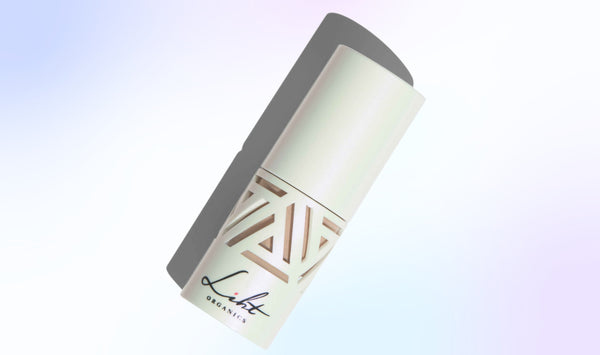
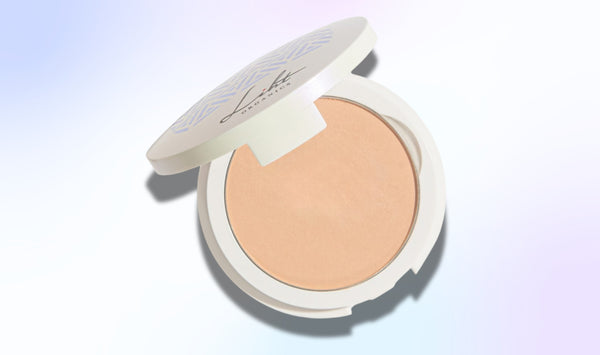
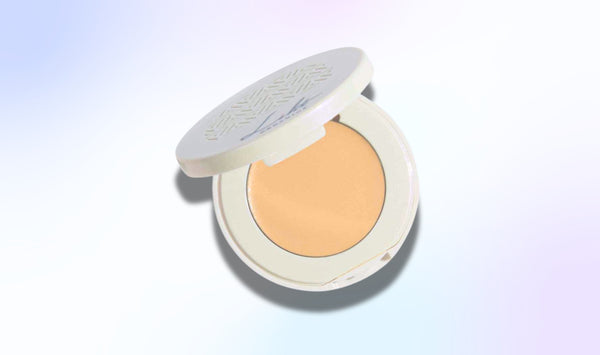
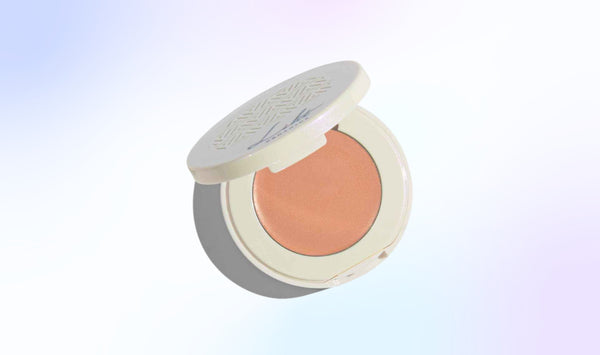
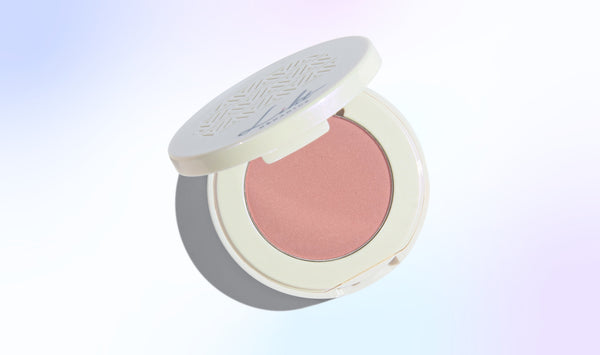
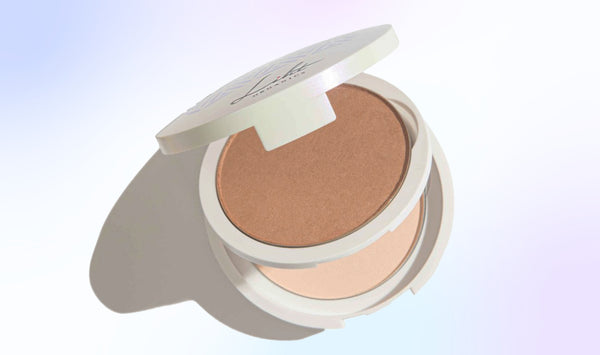
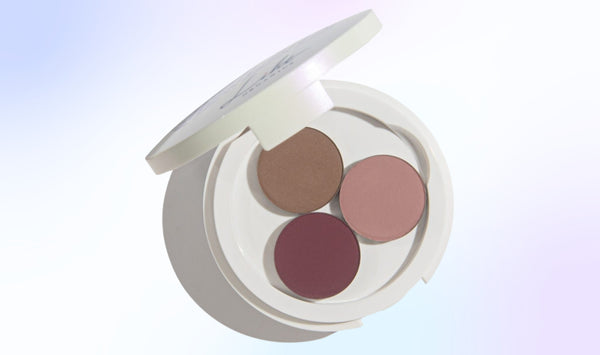
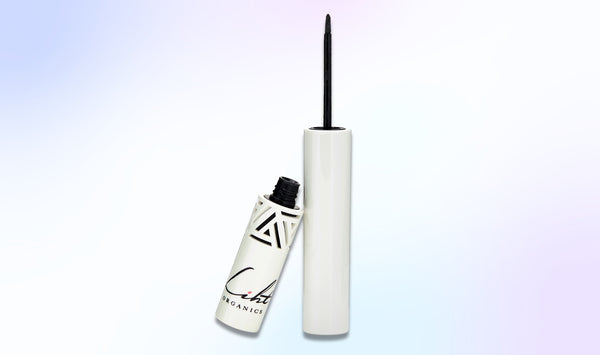
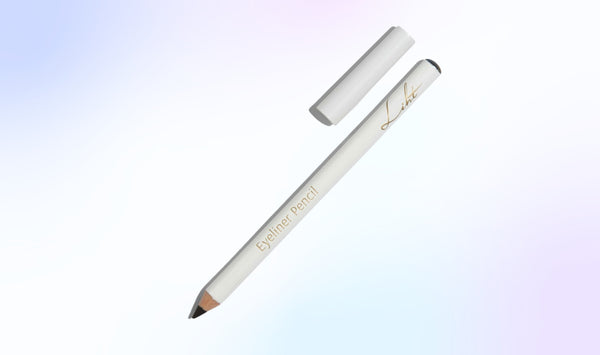
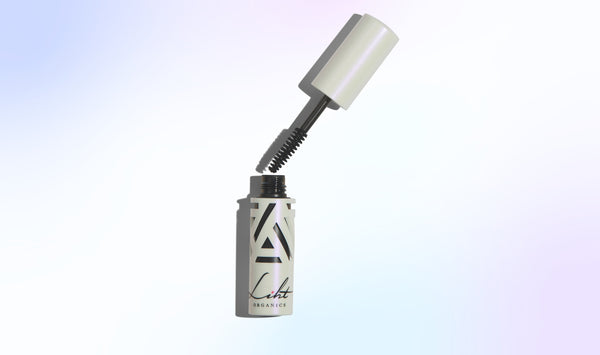
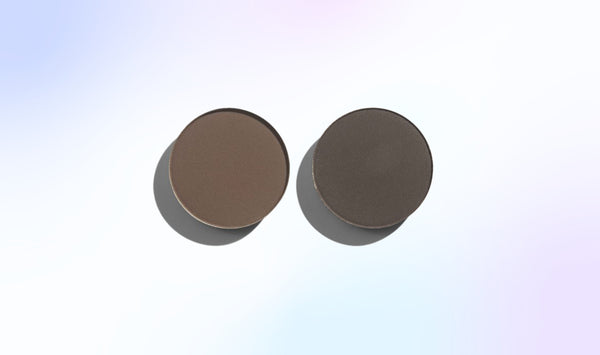
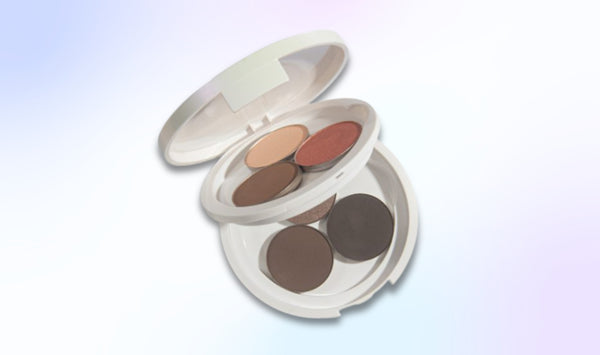
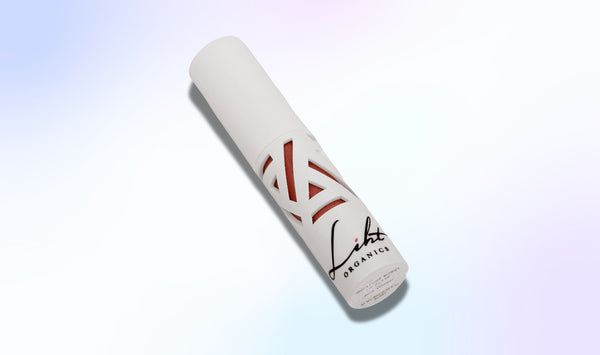
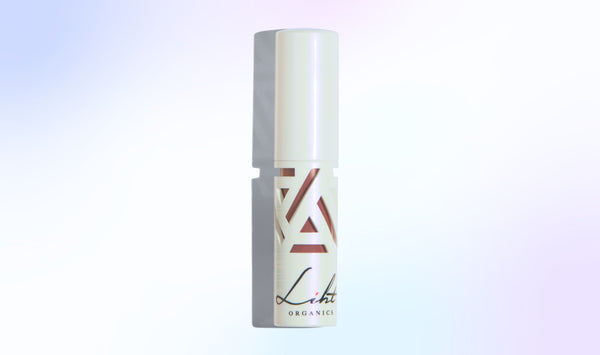
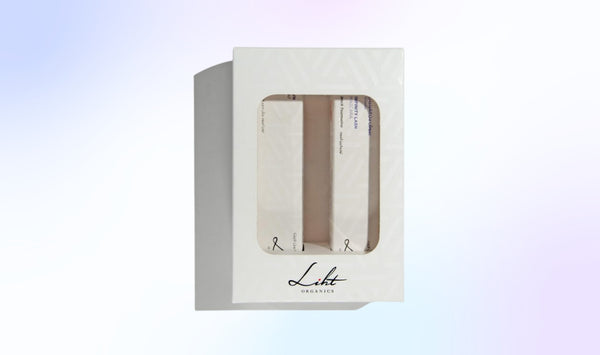
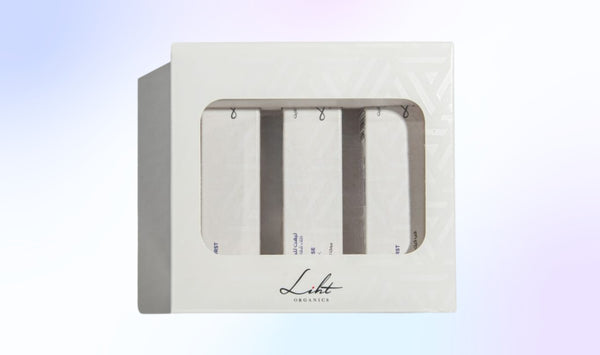


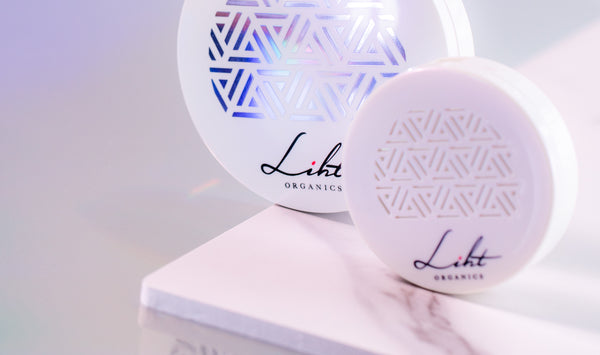
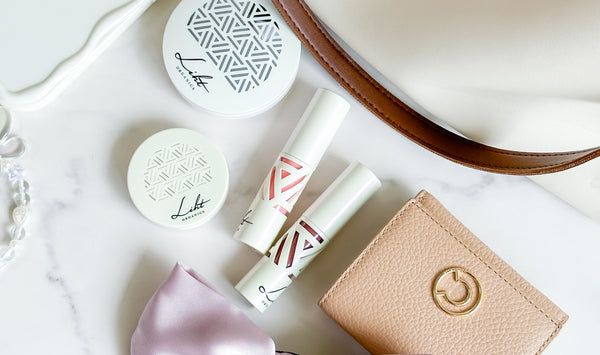
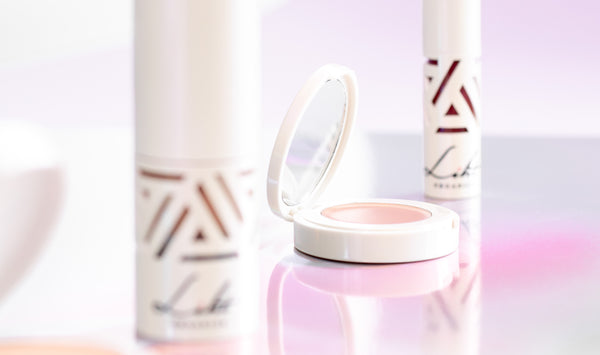




![[FEATURE] Liht Organics to debut at TFWA Asia Pacific show](http://lihtorganics.com/cdn/shop/articles/1_1.png?v=1759328400&width=170)
![[FEATURE] The Singapore-based organic makeup brand is a first-time exhibitor at this year’s TFWA Asia Pacific Exhibition in Singapore in May 2025](http://lihtorganics.com/cdn/shop/articles/2_1.png?v=1759328386&width=170)
![[FEATURE] Travel Retail Awards 2025 finalists - Best Make-up Product Color-Intense Liquid Lipstick – Liht Organics](http://lihtorganics.com/cdn/shop/articles/4_e2f54f0f-fcd1-46e7-9990-fc9d29e35131.png?v=1759328382&width=170)
![[FEATURE] Liht Organics targets expansion in travel retail](http://lihtorganics.com/cdn/shop/articles/3_1.png?v=1759328346&width=170)
































































